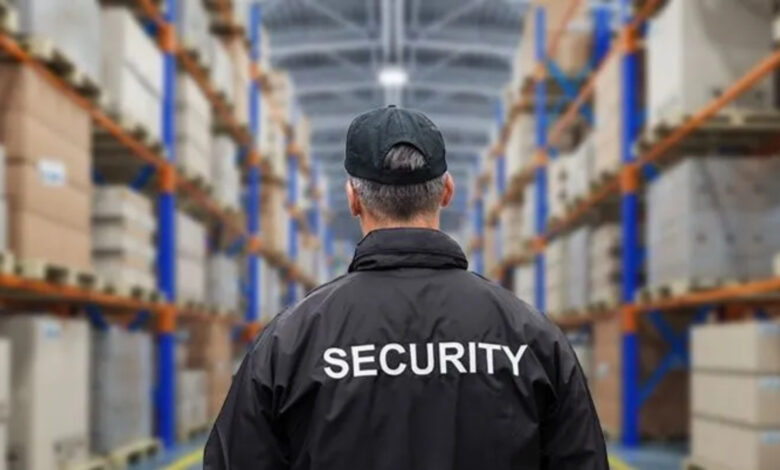
Warehouse and Retail Store Detective Services in the UK
Introduction
The retail and warehousing industries form the backbone of the UK’s economy. From high-street shops and supermarkets to distribution centres and logistics hubs, these sectors handle millions of transactions and goods every single day. However, with such scale comes vulnerability. Theft, fraud, and internal shrinkage continue to cost UK businesses billions of pounds each year, directly impacting profits, staff morale, and even customer confidence.
While uniformed security guards play a vital role in visible deterrence, many of the losses businesses suffer happen discreetly, away from public view. Shoplifters conceal items, dishonest employees exploit weaknesses in warehouse procedures, and organised criminal gangs target stock movements. To combat these more sophisticated threats, businesses increasingly turn to warehouse and retail store detective services—specialist security professionals who focus specifically on loss prevention, investigation, and covert monitoring.
These detectives are not just guards; they are trained investigators. They observe, analyse, and intervene only when necessary, ensuring that crime is addressed effectively without disrupting the day-to-day operations of a store or warehouse. Their presence, though often unnoticed, makes a significant difference in protecting both assets and people.
What Are Warehouse and Retail Store Detective Services?
The Concept of Store Detectives
Store detectives, sometimes called loss prevention officers, are plain-clothed professionals who work inside retail environments. Unlike uniformed guards, their role is not to be seen but to blend in with shoppers, using careful observation to detect dishonest behaviour. They look for signs of shoplifting, fraudulent returns, ticket-switching, and other scams. Their ability to remain unnoticed allows them to monitor suspects discreetly, gather evidence, and then apprehend them in a lawful and controlled manner.
The Role of Warehouse Detectives
Warehouses present a different but equally serious challenge. Here, losses often come from within. Internal theft, mismanagement of stock, or collusion between staff and external criminals can cause enormous financial damage. Warehouse detectives specialise in investigating these risks. They may patrol covertly, monitor CCTV feeds, inspect delivery processes, and audit inventory records. Their focus is on identifying patterns of loss, uncovering fraudulent activity, and preventing long-term shrinkage.
Both store and warehouse detectives provide a service that is proactive rather than reactive. Instead of waiting for incidents to occur, they actively seek out weaknesses in systems and behaviours that could lead to theft, helping businesses close security gaps before criminals exploit them.
The Importance of Detective Services in Retail
Retail environments in the UK face persistent challenges from theft. Shoplifting is one of the most common crimes in the country, and in busy stores, offenders can act quickly and confidently. A uniformed guard may deter some thefts, but determined shoplifters often look for ways to avoid detection. This is where store detectives prove their value.
By blending into the crowd, detectives can monitor suspects discreetly, allowing them to build a clear picture of intent before intervening. For example, a detective in a department store might observe a shopper repeatedly moving between aisles, selecting items, and concealing them in a bag. Instead of confronting them immediately, the detective will continue monitoring until the individual attempts to leave without paying. This ensures that the offence is clear, legally valid, and supported by evidence, reducing the likelihood of disputes or wrongful accusations.
Detectives also play a crucial role in fraud prevention. In recent years, fraudulent refunds and exchange scams have become increasingly sophisticated, with criminals exploiting gaps in return policies. Store detectives, by working closely with management and reviewing suspicious transactions, help identify these fraudulent patterns and stop repeat offenders.
The Role of Detectives in Warehouses
Warehouses are often vast spaces, housing goods worth millions of pounds. Losses here can have devastating consequences, not just financially but also operationally. Unlike retail theft, which is often opportunistic, warehouse theft is frequently more organised and can involve insider collusion.
For example, dishonest employees may hide stock in delivery trucks, mislabel shipments, or work with external accomplices to smuggle goods out of the premises. These types of theft are difficult to detect with standard security measures. Warehouse detectives, however, are trained to identify unusual behaviour and irregularities in stock records. By carrying out covert investigations, they can uncover organised theft rings operating within warehouses.
Detectives also provide value through procedural reviews. If a warehouse is experiencing unexplained stock shrinkage, a detective may audit delivery logs, observe staff routines, and monitor CCTV at vulnerable points such as loading bays. Their analysis often reveals weaknesses—perhaps poor supervision at night shifts or a lack of checks during returns processing. By addressing these vulnerabilities, warehouses can dramatically reduce losses.
Skills and Training of Store and Warehouse Detectives
The role of a detective in retail or warehouse environments requires a distinct set of skills, different from those of uniformed guards.
First and foremost, they must be excellent observers. Detectives are trained to notice subtle behaviours, such as nervous movements, unusual patterns of browsing, or employees repeatedly accessing restricted areas without clear reason.
Secondly, they require patience and discretion. Detectives may monitor a suspect for extended periods before taking action. Acting too quickly could lead to false accusations; acting too late could allow the theft to succeed.
In the UK, most professional detectives hold a Security Industry Authority (SIA) licence, ensuring they meet the regulatory standards for security professionals. Their training often includes:
- Covert surveillance and evidence-gathering techniques.
- Knowledge of laws regarding theft, detention, and citizens’ arrests.
- Conflict resolution and safe intervention tactics.
- Report writing and communication with police.
- Customer service, ensuring that their actions do not negatively impact genuine shoppers or employees.
Many detectives also receive specialist training in fraud detection, stock auditing, and use of technology such as CCTV systems and RFID tracking.
Legal and Ethical Responsibilities
Operating as a store or warehouse detective carries significant legal responsibilities. In the UK, detectives must abide by strict rules when detaining individuals. They can only intervene if they have reasonable grounds to believe a theft has occurred, and any detention must be carried out lawfully, safely, and proportionately.
Ethical considerations are equally important. Detectives must treat all individuals with respect, avoid profiling based on bias, and ensure that evidence is collected and handled appropriately. These responsibilities are vital, as mistakes not only risk damaging reputations but can also result in legal challenges against the business.
Real-World Examples of Detective Work
To understand the impact of detectives, consider a busy supermarket chain in London. The store had been experiencing significant stock losses in its alcohol section, with uniformed guards unable to deter persistent shoplifters. After hiring store detectives, the team was able to identify repeat offenders who had been disguising their theft by using baby prams and shopping bags. Within weeks, arrests were made, and losses were reduced by more than half.
In a warehouse setting, a distribution centre noticed ongoing shrinkage of electronics. Warehouse detectives were brought in to investigate. Through covert surveillance, they uncovered a group of employees who had been systematically removing small, high-value items and passing them to external accomplices during deliveries. The operation was shut down, arrests were made, and the business saved hundreds of thousands of pounds annually.
These examples highlight how detectives go beyond surface-level deterrence, actively uncovering hidden threats that standard security measures may miss.
The Benefits of Store and Warehouse Detective Services
The value of these services extends far beyond catching individual thieves.
For retailers, detectives create a safer, more controlled shopping environment. Customers can browse without the disruption of frequent theft-related incidents, and staff feel reassured knowing that professionals are handling security challenges.
For warehouses, detectives not only prevent theft but also strengthen operational integrity. Their audits and investigations help managers identify weaknesses in procedures, leading to more efficient systems and reduced opportunities for internal fraud.
Ultimately, detectives protect profitability, safeguard reputations, and enhance customer and employee confidence.
Challenges in Detective Services
Despite their effectiveness, detective services are not without challenges. One of the most significant is the constant evolution of criminal tactics. Shoplifters adapt quickly, using distractions, technology, or even organised teams to avoid detection. In warehouses, internal theft may involve complex schemes that require long-term investigation to uncover.
Detectives also face operational pressures. Remaining discreet while monitoring suspects is demanding, and intervening in thefts carries risk, particularly if offenders become aggressive. Furthermore, in an era of heightened public awareness, detectives must carry out their duties with utmost professionalism to avoid negative publicity or legal disputes.
The Future of Detective Services in the UK
As both retail and warehousing sectors continue to evolve, the role of detectives will expand further. Increasingly, technology will complement human expertise. Artificial intelligence and machine learning are already being integrated into CCTV systems, allowing suspicious behaviours to be flagged in real time. Detectives, however, remain essential for interpreting these alerts, making decisions, and carrying out lawful interventions.
The rise of omnichannel retail—where online and physical shopping merge—also presents new challenges. Detectives will increasingly work alongside cybersecurity teams to tackle fraud that spans both digital and physical environments. Similarly, in warehouses, advanced stock-tracking systems such as RFID will help detectives identify irregularities more quickly.
Ultimately, the future lies in a combined approach: skilled detectives using traditional observation and investigative skills, supported by cutting-edge technology and data analysis.
Conclusion
Warehouse and retail store detective services are a cornerstone of modern loss prevention in the UK. They represent a proactive, intelligent, and discreet approach to safeguarding businesses against theft, fraud, and internal shrinkage. While uniformed guards provide valuable deterrence, detectives take security to a deeper level—uncovering hidden risks, conducting investigations, and ensuring that incidents are managed legally and effectively.
From busy high-street shops to large distribution centres, detectives play a crucial role in protecting profits, enhancing safety, and strengthening operational integrity. Their work not only reduces crime but also builds trust with staff, customers, and stakeholders.
As threats become more sophisticated and technology continues to advance, warehouse and retail store detectives will remain essential. Their ability to combine human judgement, investigative expertise, and modern tools makes them invaluable in ensuring that UK businesses remain secure, profitable, and resilient in an ever-changing environment.





